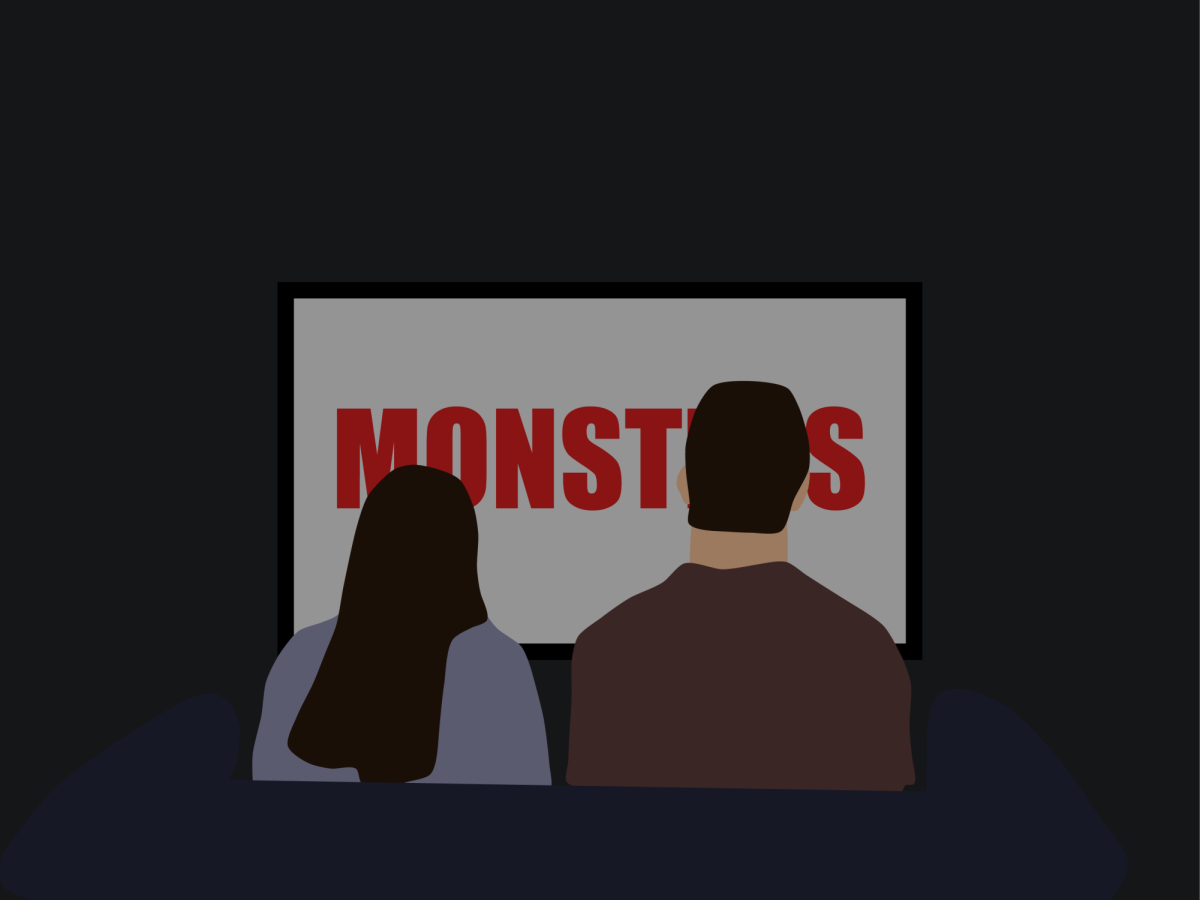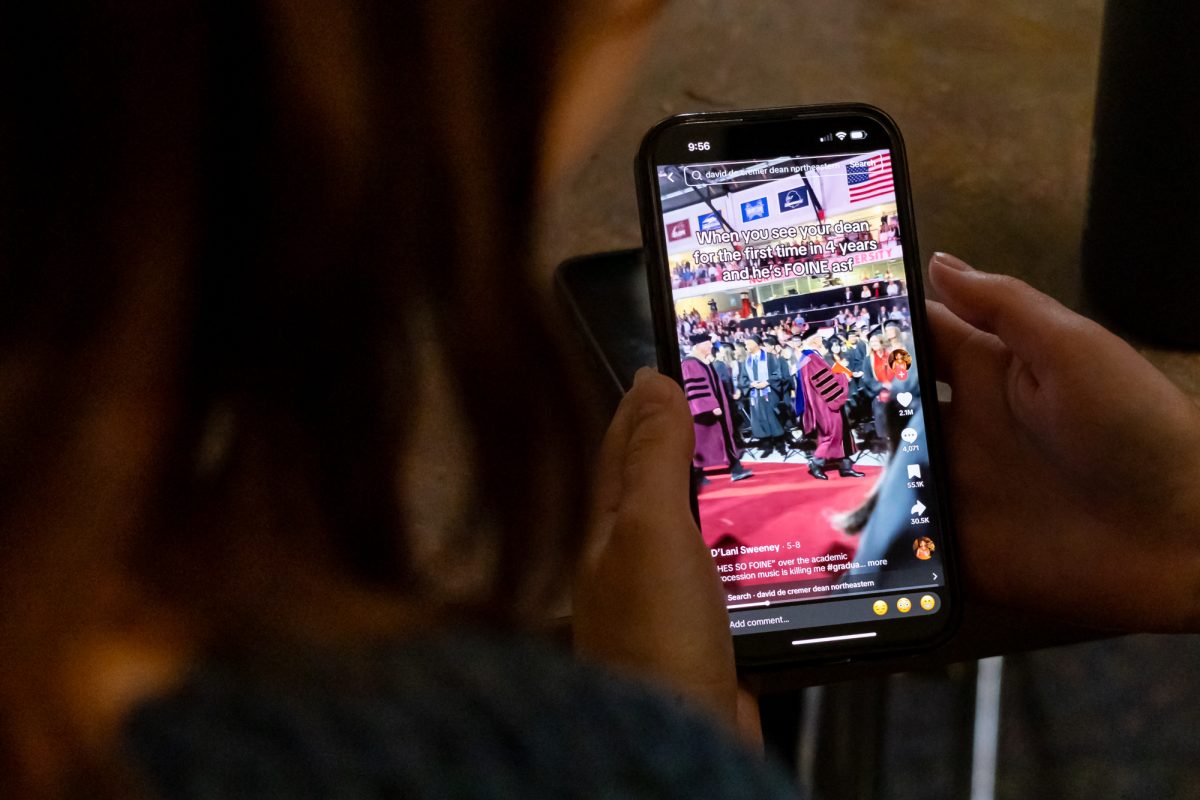Netflix released the second season of its “Monster” series Sept. 19, with the spotlight on brothers Lyle and Erik Menendez. The season, titled, “Monsters: The Lyle and Erik Menendez Story,” follows the story of the brothers’ 1996 conviction for murdering their parents. The release of season two of “Monster” has produced a lot of buzz, generating 12.3 million views on Netflix’s Global Top 10 for the week of Sept. 16-22. The season has since spent three weeks on Netflix’s Global Top 10 and has reached Top 10 TV in 89 countries.
Sensationalizing the Menendez brothers’ story for entertainment is reflective of a larger societal issue: the glorification of criminals. As an audience, we are often captivated by media that exploits real-life tragedies such as abuse and murder.
Lyle and Erik Menendez shot and killed their parents José and Kitty Menendez Aug. 20, 1989. The prosecution’s accusations against the brothers initially alleged that the murders were financially-motivated, aimed at inheriting their father’s $14 million estate.
However, during Lyle and Erik Menendez’s trials — which were televised — the brothers disclosed that their father was physically and sexually abusive and their mother was complacent as she was addicted to drugs and alcohol. Despite these revelations, the brothers were convicted of first-degree murder and both received life sentences with no possibility of parole.
The Menendez brothers’ story is tragic and stomach-churning, yet it has been told for entertainment multiple times. Before Netflix’s edition, A&E released “The Menendez Murders: Erik Tells All” in 2017, Peacock produced “Menendez + Menudo: Boys Betrayed” in 2023 and Fox Nation created the docuseries “Menendez Brothers: Victims or Villains” this year.
A YouGov survey from June 2024 found that 57% of U.S. adult citizens consume true crime content. The survey also found that 48% of participants consume content about murder, making it the most popular category among all true crime topics listed.
This true crime phenomenon begs the question: Why are we so obsessed with grotesque, traumatic stories in the form of entertainment?
The real-life stories of figures like the Menendez brothers have become topics to debate over drinks with friends, binge-watch on streaming platforms with popcorn in hand and scroll through endless TikToks learning about. From Ted Bundy to Gypsy Rose Blanchard, absorption of these cases gives them a celebrity quality.
A new court hearing has since been set for Nov. 29, where new evidence including a letter written by Erik Menendez will be reviewed. “There’s no question that they committed the killing,” Los Angeles County District Attorney George Gascón said in an interview with CNN. “The question is to what degree of culpability should they be held accountable to given the totality of the circumstances.”
Reopening the case to examine new evidence in a different cultural environment surrounding sexual assault is a positive consequence of the brothers’ popularity in the media. However, recognizing these people as “characters” can launch them into fame and sensationalize the tragedies of their lives.
The Menendez brothers have participated in several interviews for the media to share their story, including with ABC’s Barbara Walters. “This tragedy will always be the most astounding and regrettable thing that has ever happened in my life…You can’t escape the memories, and I long ago stopped trying,” Lyle Menendez told People in a 2017 interview. “I still carry the guilt…It will always be part of you. But it doesn’t have to define you.”
Despite the brothers’ hopes that this tragedy is not their whole story, they are constantly reliving it and recounting it for a worldwide audience.
2021 saw a surge of Gen Z interest in the case, with The New York Times writing, “the Menendez brothers have been cast by some on social media as stars (their video edits invoke hallmarks of ‘stan’ culture, like upbeat pop music and dreamy soft-focus shots) and sex symbols.”
On TikTok, a quick search of Erik and Lyle Menendez generates these fan edits described by the Times. One edit from January 2021 amassed over 470,000 likes, over 44,000 saves and 14,000 shares.
The release of “Monsters” generated new content for fans to obsess over, with an edit of Nicholas Chavez, who portrays Lyle Menendez, receiving 2.8 million likes and over 16 million views. The abuse the Menendez brothers endured continues to be exploited as they become further sexualized on social media.
“I think a lot of that pain and tragedy gets lost in translation in some of the TikTok videos. So I think that it is important that we remember that two people are no longer alive and families have been devastated by this tragedy, and that I am at the center of it,” Erik Menendez shared with The Hollywood Reporter in an Oct. 10 interview. “I am the one responsible. I don’t want that to be diminished or minimized in any way by people that support me and believe in me.”
Erik Menendez is also concerned with the amount of misinformation and sensationalized portrayals of him and his brother’s story, specifically in regard to the Netflix show. He condemned Murphy and Netflix for the series and shared his thoughts in a statement posted to his wife Tammi’s X page, which read, “It is with a heavy heart that I say, I believe Ryan Murphy cannot be this naive and inaccurate about the facts of our lives so as to do this without bad intent.”
In a video uploaded to X by Entertainment Tonight, Murphy defended his portrayal of the brothers, saying, “We had an obligation as storytellers…” that was backed by “three years researching” the case.
A question in the YouGov survey asked if true crime content “Glamorizes criminals, giving them undue attention,” to which 38% of participants agreed, 35% disagreed and 27% marked “Not sure.” The discrepancy between these percentages demonstrates that most Americans are uncertain of its implications, moral ground and societal impact — and yet, we continue to be enthralled each time a new true crime series is released.












